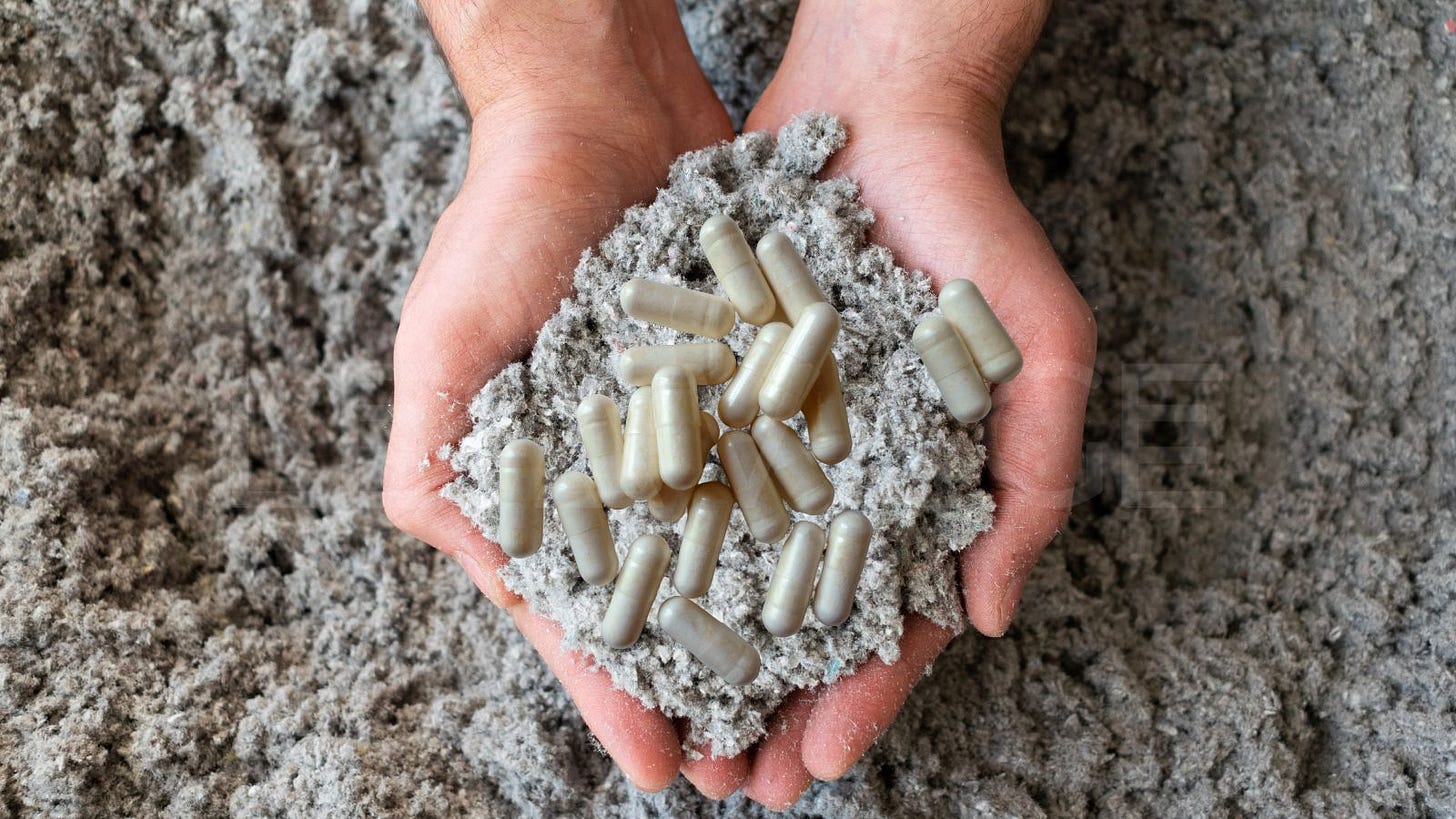Chill On The Cellulose Capsules
Is there a correlation of consumption of cellulose capsules to negative health effects?
Microcrystalline cellulose (MCC) is a refined, purified form of cellulose, which is a natural polymer derived from plant fiber.
Call me crazy, but I don’t think humans should be consuming a lot of polymer. I would bet that this, along with other environmental and nutritional factors is correlated to our increasing disease rates.
Here are the ingredients from the beetroot supplement that I sell on PROFIT:
I recommend pulling open the capsule and putting the contents into a smoothie or directly in your mouth whenever possible.
Key Uses of Microcrystalline Cellulose:
Food Industry:
As a Bulking Agent: MCC is often used as a low-calorie filler in food products, helping to add texture and bulk without adding significant calories or fat. It's found in processed foods, powdered drinks, and even in sugar substitutes.
Stabilizer/Emulsifier: It helps stabilize products like sauces, dressings, and ice cream by preventing separation of ingredients.
Pharmaceuticals:
Binder in Tablets: In tablets and capsules, MCC serves as a binder and disintegrant, ensuring that pills break down properly in the body and are easy to swallow.
Formulation of Drugs: It is widely used as an excipient in drug formulations because of its ability to absorb water, making it useful for controlled-release drugs.
Properties:
Insoluble in Water: MCC does not dissolve in water, but it can absorb water, forming a gel-like structure.
Non-toxic: It's generally recognized as safe (GRAS) by the FDA for use in food and pharmaceutical applications.
Non-reactive: It’s stable under a wide range of conditions, including different temperatures and pH levels.
If you or your aging parents are taking handfuls of supplements in capsule form each day and have been for years then this is something to think about.






